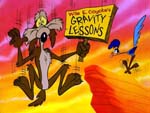News
Hail and Farewell
Jun 10, 2018
 I met a producer who worked for 60 Minutes at a high school graduation party yesterday. I found a moment to castigate him for what his program did to Greg Mortenson. He said they were intending to do a very complimentary piece about Mortenson before all that terrible stuff came out about him. I left it at that and spent the ride home thinking of what I should have said to him.
I met a producer who worked for 60 Minutes at a high school graduation party yesterday. I found a moment to castigate him for what his program did to Greg Mortenson. He said they were intending to do a very complimentary piece about Mortenson before all that terrible stuff came out about him. I left it at that and spent the ride home thinking of what I should have said to him.
Go back to Casanova’s memoirs and examine every memoir written since then, and you will find errors, omissions, exaggerations, telescoped incidents, invented dialog, and all manner of “fictions” in every one of them, without exception.
Jon Krakauer, author of Into the Wild and Into Thin Air, tales of other people’s bravery gone wrong, and the most vociferous accuser of Mortenson’s literary missteps, may very well be consumed by envy for the success of Mortenson’s book, and, more importantly, his life. Krakauer has not, to my knowledge, done anything to benefit anyone besides Jon Krakauer. Mortenson’s life work creating schools, educating girls, creating infrastructure, and training teachers, all in the most dangerous and poorly functioning countries on earth, makes him perhaps the greatest hero of our time.
I said that ten years ago, when I started All Together Now, and awarded Mortenson the blog’s first Golden A for Achievement, and I say it again today. Since the death of Martin Luther King, I can think of no one who has given the world more of themselves to better purpose and greater effect than Greg Mortenson.
So, ending as I began, I hail a great individual, one whose message and whose efforts, properly understood and appreciated, could, would, and should bring us all together now.
The Gathering Storm
Dec 15, 2016
 We’ve heard it all our lives. We never really believed it. But now we find out it’s true: Anyone born in the United States can grow up to be president. Absolutely anyone at all.
We’ve heard it all our lives. We never really believed it. But now we find out it’s true: Anyone born in the United States can grow up to be president. Absolutely anyone at all.
I don’t know what will happen over the next four years. It is easy to imagine a worst-case scenario bringing about the end of civilization. Climate change or nuclear proliferation could spell our doom, and both are in “full vigor” to quote Ebenezer Scrooge.
Meanwhile, cities and states vow to become “sanctuaries” for Muslims and/or undocumented immigrants.
Mayor DiBlasio says NYC police won’t be pressured into increasing the use of stop-and-frisk.
Women’s rights advocates plan a “Million-Woman March” on Washington to exacerbate Trump’s hangover on the day after his inauguration.
It’s not enough.
It’s not enough to organize to stop the wave of unwelcome change that is coming our way. It’s not enough to support the status quo that was soundly rejected on November 8.
Sixty million Americans voted for someone they had ample reason to know was morally reprehensible, intellectually lazy, and utterly without the mindset or inclination for public service. Many of them voted against Hillary Clinton. All of them voted against the status quo. And forty-two percent of us didn’t vote at all.
And although we are about to be served up with “business as usual” on steroids for the next four years, further affecting our incomes and entitlements, especially for those who voted for Trump, business as usual will not do any longer.
Something in the social construct of America has to change. I believe that that change must happen in the areas of employment and compensation. All working-age Americans need to be able to obtain employment at a wage that affords them a decent living. Right now, we are so very far from that, and the number of people in the labor force who are working continues its 20-year decline.
The Tasmanian devil of unrestrained capitalism is about to have its way with America. Most of the social issues—abortion, immigration, gay marriage—are just smoke and mirrors for the real agenda, which is to concentrate as much wealth into as small a fraction of fabulously wealthy Americans as possible.
And we have just the president, congress and, soon, supreme court to do it.
Syria ... and You
Sep 03, 2013
 We don't have a dog in this fight. We don't have a side to side with. The Arab world is in deep turmoil, caught between the forces of longstanding (and often US-maintained) dictatorships and antediluvian fundamentalism. Oil is about to go through the roof (according to Kiplinger forecasts), from the current $107 a barrel now to probably $120 to $140.
We don't have a dog in this fight. We don't have a side to side with. The Arab world is in deep turmoil, caught between the forces of longstanding (and often US-maintained) dictatorships and antediluvian fundamentalism. Oil is about to go through the roof (according to Kiplinger forecasts), from the current $107 a barrel now to probably $120 to $140.
If there was ever a time to call upon America's instinct for isolationism, it's now. If there was ever a time to focus our extensive innovative and entrepreneurial talents on renewable sources of energy, it's now. If there was ever a time to stifle our rush to solve the world's problems through a unilateral application of force, for which no one has yet offered a convincing scenario for success, it's now.
The people are speaking and we don't want another mideast conflict. We may, and should, and must, shed many a tear for those poor dead children laid out in their shrouded rows. But everyone's fight cannot be our fight. We don't have the prestige, the power, or the right to intervene unilaterally.
Write your representative. Tell her or him that you oppose this war. Write your senators and tell them that you oppose this war.
They may very well take us to war yet again, anyway—historical precedent does not assuage our anxieties in this regard. But if you don't speak up to your congressman and to your senators, and they go to war next week, it will, to a small extent, be your fault.
So don't just go up on Facebook and grouse to your Friends. Our nation's future, to a small but so-important extent, is in your hands.
Just Desserts
Dec 16, 2012
 We live in a world of our own making. And we have no right to question that world when it goes wrong and 20 babies are massacred by a troubled young man with unlimited access to semi-automatic weapons. We have no right to mourn. Because we knew, before it happened, that it was going to happen. And we know that it is going to happen again. And again. And again. Such atrocities (where at least four people were slain by a lone gunman) have occurred 62 times, according to Mother Jones, since 1982 (did everything start to go wrong with Reagan?).
We live in a world of our own making. And we have no right to question that world when it goes wrong and 20 babies are massacred by a troubled young man with unlimited access to semi-automatic weapons. We have no right to mourn. Because we knew, before it happened, that it was going to happen. And we know that it is going to happen again. And again. And again. Such atrocities (where at least four people were slain by a lone gunman) have occurred 62 times, according to Mother Jones, since 1982 (did everything start to go wrong with Reagan?).
So don’t show me any pictures of grieving parents or choked-up presidents. Don’t bother telling me, aghast, that the only Republican recommendations following Newtown are to arm every adult in every school and don’t print the names of the shooters. We made this world, and we know how it works. And it will only get worse until we write ourselves a new social contract, one in which the people come first, and we begin to treat ourselves with proper respect and consideration, as well as begin to demand of ourselves that we live up to certain responsibilities and expectations.
Until then, we will continue to be mere grist for a grisly media.
The Greatest Good
Sep 03, 2009

[S]houldn’t the vision of marshaling forces to improve conditions for the greatest possible number of Americans be the appropriate goal for any civilized society? —Arianna Huffington, August 31, 2009, The Huffington PostThere are two political philosophies which have vied in unequal battle throughout human history. In her excellent column (must reading at the link above), Huffington espouses the one known by the name Utilitarianism, which counsels “that the moral worth of an action is determined solely by its contribution to overall utility, that is, its contribution to happiness or pleasure as summed by all people.”1 The Utilitarian political philosophy contends that government exists to realize the greatest good for the greatest number and is the philosophy to which all governments pay lip service.
The political philosophy which governments have largely implemented throughout our long history, however, is the one that espouses the greatest good for the smallest number. For most of human history, that number was exceedingly small, usually numbering only one—the king, the emperor, the pope—who passed a few crumbs out to the second rank aristocracy but who, in essence, hogged the lion’s share for themselves.
The religious egalitarianism which Jesus advocated, and the economic system Karl Marx favored, are the only two instances in history where the greatest good for the greatest number were actually the underlying essence of the philosophy. In all other instances, such idealism was just an element of PR fluff.
Today, the American political establishment has been commandeered by the “greatest good for the smallest number” crowd. Fewer Americans are hording an ever larger slice of the pie for themselves, as the middle class sinks into poverty, wages decline, well-paying jobs disappear to lands with no labor or environmental protections, perpetual war perpetually fills the coffers of the corporatocracy, and the notions of reform, of change, of hope, have turned into a sick joke, and our mouths are filled with the taste of ashes from a ruined dream.
____________________
1 Utilitarianism, from Wikipedia, accessed Sep 1, 2009.
Pondering Israel
Feb 17, 2009
 Pity the poor Jew.
Pity the poor Jew.
Plagued by the Egyptians, plagued by the Romans, plagued by the Christians, in the 1880s so plagued by the Russians and their pogroms that a dream is dreamed of their own homeland after millennia in diaspora, and Zionism is born.
Seventy years later, after one last horrendous plague perpetrated by history’s most monstrous villain, a homeland is carved out by displacing fellow Semites from their land, assuring lasting enmity from a billion surrounding followers of Islam who hate the Jews as much as any of their erstwhile tormentors and, in this case, perhaps even with some reason. Irony doesn’t get any more ironical than that.
On top of the irony of the founding of Israel, is the greater irony that these essentially peace-loving and enlightened overachievers have themselves become a plague to generations of Palestinians whom they have displaced. Backed by American political and monetary support (the latter to the tune of $10 million a day1), Israel has developed a nuclear deterrent along with a social and cultural antipathy toward reconciliation with their victims matched only by that of the victims themselves.
An Egyptian murdered Anwar Sadat for making peace with Israel, an Israeli murdered Yitzhak Rabin for supporting the Oslo accords and other peace initiatives. Last week, two right-of-center parties tied in the latest elections, assuring the continuation of perceived irreconcilable differences between the parties.
Former President Jimmy Carter has been in tireless pursuit of peace in the Middle East for decades. His latest book, We Can Have Peace in the Holy Land, sets forth a rather kludged two-state solution involving, among other things, a narrow 35-mile Palestinian corridor between Gaza and the West Bank that would allow Palestinians to travel back and forth between the two sections of their country. Meanwhile, Israel continues to build new settlements on land won in the 1967 war, erect massive walls that will prove to be as onerous to their own people as they are to the people they are supposedly walling out, and tormenting the Palestinians with endless checkpoints and restrictions on services and imports in Gaza that keep its 1.5 million inhabitants in dire need.
It is a problem as intractable as any in history and, if not solved—considering Iran’s threatened nuclear buildup—could result in the Armageddon so fondly anticipated by our own religious fundamentalists.
____________________
1 Former U.S. President Jimmy Carter: “We Can Have Peace in the Holy Land: A Plan That Will Work,” from Democracy Now, February 11, 2009, accessed February 14, 2009
Falling Off A Cliff
Feb 13, 2009
 We’re about to fall off a cliff.
We’re about to fall off a cliff.
In fact, we probably already have and, like Wile E. Coyote, haven’t quite realized it yet. You can’t lose two and a half million jobs in five months. You can’t spend $850 billion stimulating a dead economy that groans under a $1 trillion annual deficit after a $750 billion bank bailout on top of an $11 trillion national debt. You can’t fight two losing wars simultaneously.
And when you try, you are in for a fall. For all the bad news we have absorbed of late, we are still just those few steps off the cliff edge, still suspended in the air. We await that moment when we look down and realize the earth is no longer under us. We will then look up and into the camera, a hapless grimace of quiet desperation will flit across our features, and down we’ll go, a little cloud of smoke in the place where we once stood.
And then what? Will there be riots in the street? Will a Mad Max sort of dystopia begin popping up here and there in the heartland? Will the “best lack all conviction, while the worst are full of a passionate intensity”?1
Or will the shock be so sharp and so sudden that our better instincts will prevail, and we come together in that sort of involuntary embrace that brings the young innocents together at the howl of the werewolf, the creak of the hinge?
Whatever may be, as Margo Channing observed, “Fasten your seatbelts, it’s going to be a bumpy night.”2
____________________
1 The Second Coming, by William Butler Yeats, accessed February 10, 2009
2 Memorable Quotes for All About Eve, accessed February 10, 2009
Let George Do It
Jan 30, 2009
 And so George Mitchell, America’s Peacemaker, flies off to the Middle East, to confront a conflict perhaps less longstanding but no less intractable than the one for which he has been credited with resolving.
And so George Mitchell, America’s Peacemaker, flies off to the Middle East, to confront a conflict perhaps less longstanding but no less intractable than the one for which he has been credited with resolving.
Indeed, in the intractable sweepstakes, the Palestinian-Israeli conflict wins hands down over Northern Ireland. One side sees nothing less at stake than its very survival, and the other nurses a not indefensible grudge against an injustice of towering proportions. It’s not going to be all Guinness and blarney this time around.
For one thing, in Ireland Mitchell only had to deal with one conflict; in the Middle East he has to deal with at least three: the Israelis and Palestinians each at war with themselves, and both at war with the other. For another, we recall neither the IRA nor the British articulating an ambition to exterminate the other side. In the Middle East, that is a heartfelt desire of a significant minority on both sides. Finally (and this is merely a personal opinion shared with hardly anyone but author Joel Kovel1 and various interviewees on Democracy Now), a two-state solution is bound to fail.
Point #1, and for this we recommend Colin Shindler’s latest book on Israel,2 any people that can field 21 political parties in its first election (12 of which qualified for the ballot)3 has to be a contentious one, and if most of Israel’s governments since independence in 1948 have not been made up of hastily assembled and fragile coalitions, it seems as if they have. The inability of Arabs to get along with one another is legendary.
The fact that many on both sides would like to exterminate the other is, perhaps, not surprising, given the context. Fatah felt the same way, until the day it didn’t and granted Israel’s right to exist. If Arafat’s PLO hadn’t been shot through with lassitude and corruption, HAMAS might not have prevailed in fair-and-square elections, and the situation Mitchell is confronting today would not be such a thorny one. But it is, and Hamas’s legitimacy must be addressed. Once again, as in Afghanistan, we seem to be on the side of the corrupt establishment in their penthouses and palaces, and opposed to the dusty freedom fighters who have only the people on their side. (We hasten to note that the Taliban is only accorded a slight edge in the people’s preference over the Karzai disaster, owing to the fact that they do occasionally supply some meager services along with the stonings and the acid attacks.)
Finally, separate is inherently unequal—a lesson we learned in America long ago. A two-state solution will leave the parties peering covetously over the fence at the grass on the other side. The only hope for these unhappy people is assimilation into a single state, inextricably amalgamating their political, social, and economic futures. Impossible, you say? Well, there you are wrong, because anything is possible.
Anything.
____________________
1 Overcoming Zionism: Creating a Single Democratic State in Israel/Palestine, by Joel Kovel, 2007 (accessed, as were other footnoted items in this posting, January 26, 2009)
2 A History of Modern Israel, by Colin Shindler, 2008
3 Op. cit., pg. 66
Wringing Out the Old
Dec 31, 2008
 We are today leaving behind not just another year, but an era. Whatever comes next, even if only more of the same, cannot be worse than what has gone before.
We are today leaving behind not just another year, but an era. Whatever comes next, even if only more of the same, cannot be worse than what has gone before.
We have witnessed eight years of the vilest administration our country has ever known, far outdoing in its cupidity, its viciousness, its arrogance, its corruption, and its lawlessness the worst excesses of any that came before it.
We have witnessed a baseless, futile militarism that has sapped our treasury for generations to come.
We have witnessed trillions in giveaways to the wealthiest while watching trillions of our own wealth dissipate in an economic collapse caused by those same individuals.
We have witnessed a stripping away of our fundamental constitutional rights and a debasement of our national honor before the world from which we may never fully recover.
We have witnessed levels of poverty, ill health, and ignorance unheard of in—and inconceivable to—the rest of the industrialized world.
And we have tolerated it all with barely a squeak. Our mainstream media are silent. Our politicians are silent. There have been few marches, no sit-ins, rare civil disobedience. The middle-aged women of Code Pink have taken it on the chin for the rest of us, and the truth is only heard on the fringes—from Ralph Nader, from Dennis Kucinich, from Democracy Now. Even our grassroots organizations—MoveOn.org and their spawn—are falling in behind a man who has not endorsed one single plank of a progressive platform.
Foreclosures proliferate, unemployment soars, salaries are in freefall, the market loses 40% of its value taking our 401(k)’s with it. If General Motors goes bankrupt, it will cut a swathe through what remains of American manufacturing that will reduce us to the banana republic New York Times columnist Thomas Friedman has already accused us of being.
So where do we go from here? On to 2009. And a nation that once thought itself the last best hope of the world has become the world’s great oppressor and its own worst enemy. Who would have thought on that clear blue Tuesday morning in September that we could ever bring ourselves to this?
However, tomorrow, like today and yesterday, belongs to us, and a brighter day will be ours. This is what a progressive agenda means—that progress is not only possible but inevitable. We are not Rome, where men and women were torn apart for sport, or medieval Spain, where they were torn apart for God.
We are better than that, and if we can only call upon our wiser, kinder natures, the anomaly of the past eight years—the horror of it—may, will, must one day join brutish Rome, inquisitorial Spain, and all the horrors we have inflicted upon each other, join them all in the trash bin of a history we will have finally, joyously overcome.
And that will be a Happy New Year.
The $100 Billion Misunderstanding
Dec 20, 2008
 The Pentagon Papers revealed the debacle that was the Vietnam war, and now the New York Times and the online journalism web site ProPublica have published what should be an equally incendiary document, Hard Lessons: The Iraq Reconstruction Experience, written by the Office of the Special Inspector General for Iraq Reconstruction following several years of interviews and study.
The Pentagon Papers revealed the debacle that was the Vietnam war, and now the New York Times and the online journalism web site ProPublica have published what should be an equally incendiary document, Hard Lessons: The Iraq Reconstruction Experience, written by the Office of the Special Inspector General for Iraq Reconstruction following several years of interviews and study.
The bottom line? The reconstruction effort in Iraq has wasted over $100 billion, much of it American taxpayer money, through a combination of poor or nonexistent planning, disruptions caused by the insurgency, turf wars among uncoordinated participants, and fraud: “[A] massive waste of taxpayer dollars.”1
ProPublica provides particularly useful Excerpts from the 513-page report. They reveal that reconstruction was inadequately planned for before the invasion and ineptly pursued afterwards. In what appears to be full-fledged bureaucratic panic, agencies and offices opened and closed; administrators came and went; huge projects lay dormant halfway to completion and completed projects were not sustained; turf wars between Defense, State, USAID, the White House and others resulted in huge wastes of time and money. And through it all, an insurgency which to this day holds sway throughout Iraq played havoc with the few coordinated actions the various offices and authorities managed to mount during their short tenures.
The Inspector General concludes, “Why was so large a reconstruction program pursued in so insecure an environment? Others will have to provide that answer.”2
Obama has pledged (sort of) to disengage us from this Slough of Despond. However, he has also pledged to get us more involved in the slough to the east in
Afghanistan, boosting both military and reconstruction efforts in an environment which is proving even more intractable than Iraq. If pursued, this unilateral, military response to an essentially multilateral situation calling for international policing efforts, particularly in a region which has proven time and again to be unmanageable by history’s very best managers, will be a morass into which will sink Obama and all his hope for change.
“Hard Lessons” is a road map to disaster. Nothing in the manner we have pursued our efforts in Afghanistan to date, and nothing in the announced plans of the new administration, give us reason to believe we are not still on that road.
____________________
1 Hard Lessons, pg. iii.
2 Ibid.
Attitude Adjustment1
Dec 09, 2008
 The Family of Man began as a family, huddled in a dark cave against the forces of a malevolent Nature, including—especially—the family in the cave next door. Reason was on our side, however, and reason, telling us there was strength in numbers, created the tribe. When agriculture settled us down ten thousand years ago, tribes became settlements, which became towns, cities, city-states, and, finally, countries, constructs, again, whose primary purpose was enhancing security for a larger base of the population.
The Family of Man began as a family, huddled in a dark cave against the forces of a malevolent Nature, including—especially—the family in the cave next door. Reason was on our side, however, and reason, telling us there was strength in numbers, created the tribe. When agriculture settled us down ten thousand years ago, tribes became settlements, which became towns, cities, city-states, and, finally, countries, constructs, again, whose primary purpose was enhancing security for a larger base of the population.
Of course, along the way tribe fought tribe, Sparta fought Athens, England fought France, and complicated ad hoc alliances came and went in support of ever widening and, ultimately, global conflicts. Yet the quest for physical and economic security was always at the heart of those conflicts, even when they seemed to be initiated for purposes of conquest and empire.
The country is no longer the most-evolved unit in this search for security. Economic alliances such as NAFTA and political ones such as the European Union have gone beyond largely symbolic attempts at multinational cooperation most recently embodied in the United Nations. These alliances seek to knit countries together firmly enough in cooperative endeavors to render it unlikely they will ever again have at each others’s throats in battle.
We now find ourselves at a point in our evolution as a species where “two roads diverge in a yellow wood.” As separate countries with a limited number of extended alliances, many of us are powerful enough, should another conflict arise between us, to destroy civilization. Even absent such conflict, we face environmental threats to our security that could be equally devastating.
It seems to us that a great reckoning is at hand. Will we be capable, once again, of making the same attitude adjustment we have made countless times in the past, the adjustment that saw us lay down our arms and join an erstwhile enemy in order to defend against the greater danger perceived emanating from another quarter? Will we be able to do so when that greater enemy is ourselves? And if we do not, will not our own natures, or the Nature we have so abysmally abused, step in and write the final page in the chronicle of human history?
These are the questions to which the progress of civilization has brought us. These are the questions which will be answered. The 21st century will see the Family of Man become one family, or the 22nd will belong to the flora and fauna over which we enjoyed a short and unhappy dominion.
____________________
1 Our illustration: Family of Man, by Georg Schmerholz, 1976
Civics Lesson
Dec 07, 2008
 Okay, college grad, think yer pretty smart? Try this Civics Quiz on for size. It comes from the Intercollegiate Studies Institute (ISI) an organization which seeks “to enhance the rising generation’s knowledge of our nation’s founding principles.” They have their work cut out for them.
Okay, college grad, think yer pretty smart? Try this Civics Quiz on for size. It comes from the Intercollegiate Studies Institute (ISI) an organization which seeks “to enhance the rising generation’s knowledge of our nation’s founding principles.” They have their work cut out for them.
In 2006 and 2007, they tested 14,000 freshmen and seniors at 50 colleges and universities nationwide on the basics of their American heritage, and in both years they failed, scoring less than 55 percent on average.1 This year, in an attempt “to learn more about the real-world consequences of this collegiate failure,” they tested a broader cross-section of Americans of all ages and backgrounds, asking them 33 basic questions about the history and operation of American democracy, the Civics Quiz mentioned above which you are invited to take. The bad news:
- Seventy-one percent failed, with an overall average score of 49 percent.
- College adds little to civic knowledge.
- Television, including TV news, dumbs down America.
- Elected officials score five percentage points lower than non-officeholders.
- Fewer than half of all Americans can name all three branches of the federal government.
____________________
1 Summary, from ISI, accessed December 3, 2008
Separate and Unequal
Nov 24, 2008
 Zionism, like apartheid, is a lost cause, and it is only a matter of time before it is consigned to history. Whether the Israeli people will take themselves down with it remains to be seen.
Zionism, like apartheid, is a lost cause, and it is only a matter of time before it is consigned to history. Whether the Israeli people will take themselves down with it remains to be seen.
Author Joel Kovel, in his book, Overcoming Zionism (Pluto Press, 2007), argues that “only a single-state secular democracy can provide the justice essential to healing the wounds of the Middle East,”1 and we agree.
Kovel traces the history of Zionism, from Theodore Herzl to the present, and shows how its essentially racist policies are aimed not so much at subjugating the Palestinian people as they are at driving them entirely from the lands the Zionists believe is theirs by God-given right. An ardent advocate for acknowledging our common humanity, Kovel is essentially a “One-Worlder,” who understands that nationhood is a two-edged sword which, in its exclusionary, xenophobic, and inherently expansionary roles impedes the cause of world peace.
We know from hard-won experience that separate is inherently unequal. The walls must come down, the borders must be erased, the people must learn to live in a single, secular state. Impossible? Not so impossible as maintaining the status quo or forging an unjust, unequal, and futile two-state solution.
Thankfully, Zionism is a fading ideal in Israel, where the majority of the population now favor peace. They will move even closer to it when they realize they cannot live separate from the people they displaced. Can it happen? Can the Berlin Wall collapse without a single shot being fired? Can apartheid disappear without a drop of blood being spilt? Can America put a Black man in the White House?
Anything can happen.
____________________
1 Overcoming Zionism, Product Description, from Amazon.com (Accessed November 19, 2008)
Where Will It All End?
Sep 24, 2008
 There has been a great deal of work on why individuals or groups resort to terrorism. There has also been a growing literature on whether terrorism “works.” But there has been virtually no systematic analysis by policymakers or academics on how terrorism ends.1
There has been a great deal of work on why individuals or groups resort to terrorism. There has also been a growing literature on whether terrorism “works.” But there has been virtually no systematic analysis by policymakers or academics on how terrorism ends.1
Now there is, thanks to a study by Seth G. Jones of the Rand Corporation. Jones’s statement before the House of Representatives Subcommittee on Terrororism and Unconventional Threats and Capabilities of the Committee on Armed Services (whew!) has been published as a Rand Testimony entitled Defeating Terrorist Groups.
And terrorist organizations do close down their operations—eventually—usually. Examining the international terrorist scene since 1968, Jones finds that approximately 62 percent of all terrorist groups—though only 32 percent of religious terrorist groups—have ceased their activities. In the overwhelming majority of cases, these culminations have come about either through political negotiation or police action. Overall, military force has ended terrorist activity a scant seven percent of the time.
Though there have been some victories wrought by terrorist activity overall (10 percent of the time), no religious terrorist group has achieved victory during the period Jones studied. He recommends a two-prong strategy in dealing with al Qa’ida: more cooperative international police and intelligence work supplemented by military action taken by indigenous forces as opposed to the U.S. military.
Although most of Jones’s testimony concerns the implementation of that two-pronged assault on al Qa’ida, early on in his testimony he lists other tactics that bear emphasizing: “redressing grievances and meeting the legitimate aspirations of Muslims; and countering al Qa’ida’s ideology.”2
Let us lay to rest the nonsense regarding the motivations of suicide bombers. No one blows themself up in order to enjoy the favors of 70 virgins in the afterlife. They do so because they despair of attaining their interpretation of liberty and justice in this life, and they do what they do in hope of attaining it for others. And among their grievances are legitimate ones involving foreign intervention, resource theft, and religious and social persecution. That their methods are horrifying and inexcusable only speaks to the depth of their despair, and to the urgency with which it needs to be addressed—by all legitimate means available—by the international community.
Jones’s full-length study, upon which his testimony is based, is entitled How Terrorist Groups End.
____________________
1 Defeating Terrorist Groups, pg. 1
2 Op. cit., pg. 7
Nation Building Begins at Home
Sep 17, 2008
 Having been born into a world with Europe in ruins; been witness to the debacles in Korea, Vietnam, and Iraq II; and been horrified by the enormities of Cambodia, Serbia, Rwanda, Somalia, Sudan, and other lesser genocides, we are big fans of nation building. There are those on the left who might say we should mind our own business and stop throwing our muscle around in other countries. When they speak in the context of overthrowing legitimate leaders (Allende in Chile, Mossadegh in Iran, etc.), and invading nations primarily to bolster corporate interests (take your pick), they are right. However, under certain circumstances, nation building becomes a moral responsibility.
Having been born into a world with Europe in ruins; been witness to the debacles in Korea, Vietnam, and Iraq II; and been horrified by the enormities of Cambodia, Serbia, Rwanda, Somalia, Sudan, and other lesser genocides, we are big fans of nation building. There are those on the left who might say we should mind our own business and stop throwing our muscle around in other countries. When they speak in the context of overthrowing legitimate leaders (Allende in Chile, Mossadegh in Iran, etc.), and invading nations primarily to bolster corporate interests (take your pick), they are right. However, under certain circumstances, nation building becomes a moral responsibility.
Eight of those circumstances are discussed in a report from the Rand Corporation's National Security Research Division.1 After the War: Nation-Building from FDR to George W. Bush concludes, “Successful nation-building requires unity of effort across multiple agencies and, often, multiple governments.”2
Two early successes discussed in the report, Germany and Japan, “remain the gold standard for postwar reconstruction. No subsequent nation-building effort has achieved comparable success.”3 It worked there, in part, because “[b]oth [countries] had been devastatingly defeated, and both had surrendered unconditionally.”4
Nation building went into abeyance during the Cold War and was revived in the 1990’s with successful programs in Bosnia and Kosovo and less successful attempts in Somalia and Haiti. The key to the successes were, as the report well argues, careful planning, widespread cooperation, and the political will to see it through.
The subsequent Bush II go-it-alone-on-a-shoestring strategy in Iraq and Afghanistan effectively threw out all the institutions and strategies for nation building developed during previous administrations back to FDR, and Afghanistan became “the least resourced US-led nation-building operations [sic] in modern history.”5
Nothing less than near-universal agreement that a nation requires nation building, followed by a massive and sustained effort by all interested parties to see the process through can bring about a desired result. We witness in the laboratories of Somalia, Afghanistan, and Iraq the consequences of a lesser commitment to this process, as well as the futility of unilateral implementation of a nation-building policy.
We will build a safe, peaceful, and democratic world together, or not at all.
____________________
1Rand National Security Research Division
2After the War (.pdf), p. xxiv
3Op cit. (.pdf), p. xiii
4Ibid. (.pdf)
5Op cit. (.pdf), p. xx
September 11, 2001
“So far like the present...”1
Jul 30, 2008
 I just finished an extraordinary book, which I should have read years ago. In fact, I should have been in it!
I just finished an extraordinary book, which I should have read years ago. In fact, I should have been in it!
Parting the Waters: America in the King Years, 1954-63 by Taylor Branch, won the Pulitzer Prize for history in 1989. It is, quite literally, a blow-by-blow recounting of the early years of the greatest struggle of our time—the struggle for equal justice for all in America. Now I was a nine-year-old midwesterner in 1954, so I probably shouldn’t blame myself for not being in on the inception of the civil rights movement. However, I was 17 in 1963 and should at least have been in Washington, D.C., listening to the “I Have a Dream” speech which climaxes this volume.
Of course, 1963 wasn’t the end of the civil rights movement, not even the beginning of the end, though it may have been, to quote Churchill, the end of the beginning. King’s role would go on for another five years, until his assassination on the balcony of that infamous Memphis motel on April 4, 1968. Branch’s magnum opus goes on as well, in two more volumes, Pillar of Fire (1963-65) and At Canaan’s Edge (1965-68).
The highlights of this first tome (it is over 1,000 pages) are familiar to any literate, engaged American: Rosa Parks and the Montgomery bus boycott; early voter registration drives; Birmingham with its fire hoses and police dogs; the assassination of Medgar Evers; and, of course, the huge March on Washington, the largest and most peaceful demonstration in D.C. history.
However, it’s the infinite, day-to-day details which Branch covers that most impressed, moved, and horrified me. The jailhouse beatings of the female Freedom Riders; J. Edgar Hoover’s obsessive and underhanded pursuit of King and his inner circle; the Kennedys’ vacillations and betrayals. And through it all, the enormous cast of characters besides King which he brings to vibrant life. They risked (and too often lost) everything to put an end to lives that were scarcely an improvement over slavery.
The depth and breadth of hatred, brutality, and injustice which southern politicians, law enforcement officials, and average citizens have visited upon their black brothers and sisters is sickening to behold, and there can be only one possible explanation for it in my view: They must be so unable to get past what they have done to black people that it makes them all crazy.
Meanwhile,2 Luis Ramirez, a 25-year-old father of two, was beaten to death by six white teenagers in Shenandoah, PA, in front of eyewitnesses who were able to—and did—identify them all. It happened a little over two weeks ago. No charges have been filed. [Update, August 1, 2008] Three teens have been charged in the beating death, including 16-year-old Brandon J. Piekarsky, 17-year old Colin Walsh, and 18-year-old Derrick Donchack.2.1 In addition, 23-year-old Joseph McTiernan has been charged with giving Donchack alcohol before the crime was committed.2.2 [Update, August 19, 2008] Two of the teens will be tried for third-degree murder and ethnic intimidation. A third teen will be tried for aggravated assault and other charges.2.3 (Update, September 6, 2008) A fourth juvenile (unnamed as of yet) has been charged with aggravated assault, ethnic intimidation, and related counts.2.4
Meanwhile,3 a handcuffed African-American named Baron Pikes was shot nine times with a taser gun by white police officer Scott Nugent in Winfield, Louisiana. Pikes was unconscious for the eighth and ninth shots, which killed him. It happened six months ago. No charges have been filed. [Update, August 1, 2008] “Winn Parish [LA] District Attorney Chris Nevils announced Monday that the grand jury is scheduled to convene on August 12 and begin hearing evidence in the death of 21-year-old Baron Pikes.”3.1 [Update, August 14, 2008] The grand jury indicted Nugent for manslaughter yesterday.3.2 It makes one wonder what it takes to be guilty of murder in Louisiana. It probably has something to do with your color. [Update, September 13, 2008] The Winnfield Civil Service Board upheld the firing of Scott Nugent and the Pikes family has filed wrongful death suits against Nugent, the city of Winnfield, and other parties.3.3.
Meanwhile,4 there is good reason to suspect that 19-year-old Pfc. LaVena Johnson was beaten, raped, and murdered by one or more American contractors in Iraq. The Army has ruled her death a suicide. It happened over three years ago. No independent investigation has been launched. No charges have been filed. [Update, August 1, 2008] According to Truthdig.com, a 15-person civilian task force was named early in 2008 to look into allegations of sexual assault of military personnel. However, the panel has yet to meet.4.1
How long, Oh Lord, how long?
____________________
1A Tale of Two Cities, by Charles Dickens, quoted on Quotationsbook.com (Accessed July 26, 2008)
2Friend of Mexican Immigrant Beaten to Death in Pennsylvania Gives Eyewitness Account of Attack, Democracy Now!, July 24, 2008 (Accessed July 26, 2008)
2.1Now that Shenandoah teens are charged, reactions vary, Pottsville, PA, Republican Herald, July 27, 2008 (Accessed August 2, 2008)
2.2Man charged with furnishing alcohol to Shen[andoah] beating suspects, Pottsville, PA, Republican Herald, August 1, 2008 (Accessed August 2, 2008)
2.3Judge Reduces Charges in Killing of Mexican Immigrant. from Democracy Now, August 19, 2008 (Accessed August 19, 2008)
2.4Juvenile charged in fatal immigrant beating, from the Morning Call, September 5, 2008 (Accessed September 6, 2008)
3Death by Taser: Police Accused of Cover-Up in Death of African American Man Shocked Nine Times While in Handcuffs, Democracy Now!, July 24, 2008 (Accessed July 26, 2008)
3.1Grand jury to probe taser death, WDAM-TV, July 28, 2008 (Accessed August 2, 2008)
3.2Ex-officer faces charges in Taser death from the Eugene, Oregon, Register-Guard, August 14, 2008 (Accessed August 14, 2008)
3.2Civil Service Board upholds firing of Winnfield Officer in Taser case, from thetowntalk.com, September 12, 2008 (Accessed September 13, 2008)
4Suicide or Murder? Three Years After the Death of Pfc. LaVena Johnson in Iraq, Her Parents Continue Their Call for a Congressional Investigation, Democracy Now!, July 23, 2008 (Accessed July 26, 2008)
4.1Sexual Assault in the Military: A DoD Cover-Up?, by Col. Ann Wright, in Truthdig.com, August 1, 2008 (Accessed August 2, 2008)
Something of Values
Jul 11, 2008
 People who don't know where their next meal is coming from tend to have different values from those who have never known hunger or any other deprivation. This would seem like a self-evident statement that wouldn't need 17 pages of single-spaced text detailing a 35-year study to bolster it. But that's the world of the think tank for you, and the results of the World Values Survey (WVS), “Changing Values among Western Publics from 1970 to 2006,” recently published in the journal West European Politics1 can pretty much be summed up by that first sentence.
People who don't know where their next meal is coming from tend to have different values from those who have never known hunger or any other deprivation. This would seem like a self-evident statement that wouldn't need 17 pages of single-spaced text detailing a 35-year study to bolster it. But that's the world of the think tank for you, and the results of the World Values Survey (WVS), “Changing Values among Western Publics from 1970 to 2006,” recently published in the journal West European Politics1 can pretty much be summed up by that first sentence.
The good news is that those changing intergenerational values are becoming more tolerant of diversity, more directed toward self-expression, and less materialistic. And people who hold those more liberal values are maintaining them as they grow older.
The bad news: Liberalizing populations are pretty much limited to North America and Western Europe and other places (Japan, Australia) where the standard of living for most people has managed to creep above the poverty line. Still, it is good to know that as affluence does afflict a people, it renders them, as a group, rather more than less tolerant—and tolerable—than they were before.
____________________
1Volume 31, Numbers 1-2, January-March 2008, pp. 130-146.
The Once and Future Nation?
Jun 12, 2008
 The first U.S. oil well was drilled in 1859 and the last rail was laid on the transcontinental railroad ten years later. That decade, which also contained the most destructive war in our nation's history, can be said to have begun the Industrial Revolution in the United States. We can only wonder whether, 200 years later, railroads will still be around. We can be quite sure the oil will be gone.
The first U.S. oil well was drilled in 1859 and the last rail was laid on the transcontinental railroad ten years later. That decade, which also contained the most destructive war in our nation's history, can be said to have begun the Industrial Revolution in the United States. We can only wonder whether, 200 years later, railroads will still be around. We can be quite sure the oil will be gone.
How the social changes will play out over the energy crunch we are facing this generation and the next is anyone's guess—and there are a great many excellent minds at work on the guessing. However, what life was like just before those momentous times is clearly set out for us in our nation's history. The Library of Congress has provided us with an "up-close and personal" view of the hard lives led by our ancestors just before the world-altering events described above. Their Trails to Utah and the Pacific is a primary resource consisting of 49 diaries of pioneers trekking westward across America to Utah, Montana, and the Pacific between 1847 and 1869. There are also maps, photographcs, illustrations, and seven published guides for immigrants.
The diaries are part of the LOC's American Memory series, an invaluable collection of Americana on topics ranging from Advertising to Women's History. Warning: these diaries are eye opening, heart breaking, occasionally as tedious as the journeys themselves must often have been, and quite habit forming.
Copyright © 2008 All Together Now.
